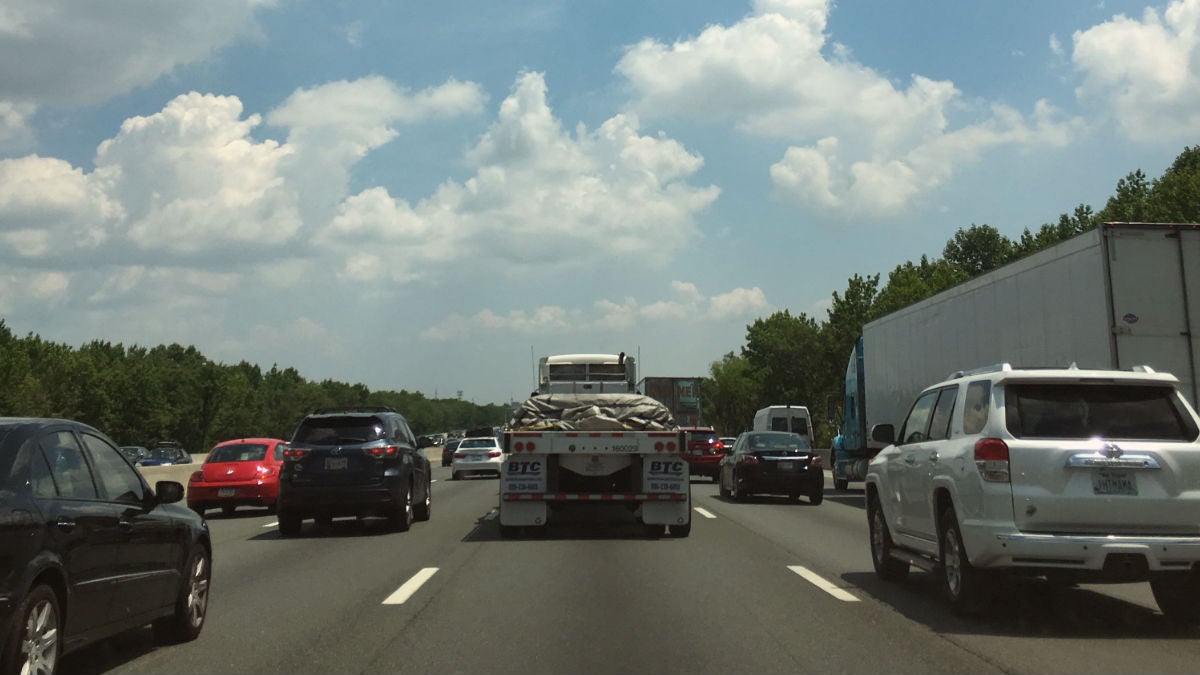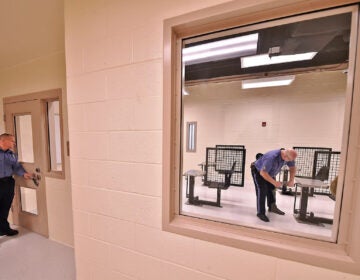Delaware considers replacing gas tax with road-use fee

Traffic backs up on I-95 NB near Christiana. (Mark Eichmann/WHYY)
Delaware is considering alternative transportation funding options.
Delaware drivers may eventually pay for each mile they travel to help fund millions of dollars in transportation infrastructure costs. The Delaware Department of Transportation is considering road-use fees as an alternative to the gas tax.
Transportation authorities across the U.S. say the gas tax, which is 23 cents in Delaware, is a dwindling and stagnate revenue source.
“As infrastructure costs grow, that revenue source does not grow with inflation. You top that with more fuel efficient vehicles, and that gap gets larger,” said DelDOT Secretary Jennifer Cohan.
“So we’re looking to supplant that revenue source with a user-based fee. If you travel 10 miles, you pay for 10 miles—it doesn’t matter if you’re driving a Prius or a Cadillac.”
Funding transportation infrastructure costs with mileage-based fees is not a new idea. But in December the U.S. Congress offered $85 million to states that want to discover alternative transportation funding options.
Cohan said Delaware took the lead, and teamed up with Pennsylvania, Vermont, New Hampshire and Connecticut to request a $3 million grant from the Federal Highway Administration to fund pilot programs examining the road-use fee.
DelDOT will utilize 50 diverse volunteers for one year to examine various mileage calculating technologies, the appropriate fee per mile and compare it to the current gas tax.
There are several available technologies that calculate mileage, such as devices installed in cars, cell phones, odometer readings and devices plugged into gas pumps.
Some drivers in states like Oregon and California, which already are studying road-use fees, have privacy concerns about devices that are permanently installed in vehicles, however.
Cohan said she doesn’t know if drivers would pay more or less than they are currently, but believes it would be more equitable across the board.
If DelDOT is permitted the grant in September, the planning phase will begin in October and DelDOT must report its findings to the administration within 18 months. If the pilot program is successful, the General Assembly and Governor must approve the road-use fee before its implementation and gas tax elimination.
Cohan said DelDOT expects the project will expand to more states along the I-95 corridor. She said transportation authorities must consider long-term strategies and implement funding policies that represent existing conditions.
“That’s what we’re trying to do—plan for the future and not be so reactive when it comes to infrastructure funding,” she said.
WHYY is your source for fact-based, in-depth journalism and information. As a nonprofit organization, we rely on financial support from readers like you. Please give today.





